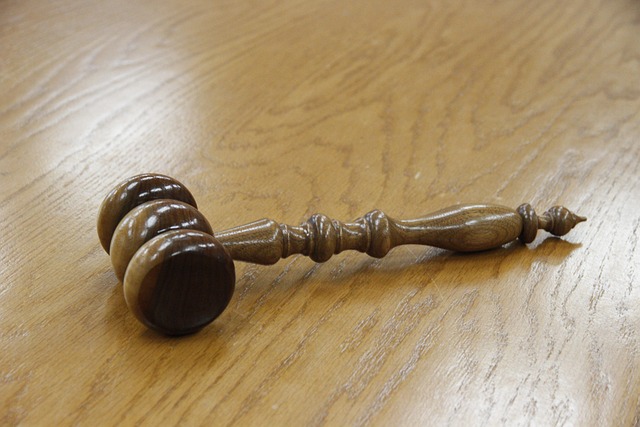Estate administration is a complex process requiring meticulous management for accurate asset distribution according to the deceased's wishes. A probate lawyer or executor oversees this, ensuring compliance with legal requirements and respecting the deceased's intentions. Efficient estate administration involves will validation, asset gathering, debt/tax management, and final distribution to beneficiaries. Engaging reputable probate services or hiring a probate lawyer streamlines proceedings, offers emotional relief, and facilitates quicker estate settlement through accurate paperwork, clear executors, and communication among stakeholders.
Efficiently managing an estate during probate is a delicate and complex task. This comprehensive guide breaks down the intricacies of estate administration, highlighting critical aspects from understanding the process to leveraging the expertise of a probate lawyer. We explore essential steps for navigating probate proceedings, ensuring smooth estate settlement. From executing duties as an estate executor to validating wills and facilitating estate distribution, this article provides vital probate legal help and court assistance.
- Understanding Estate Administration: A Comprehensive Overview
- The Role of a Probate Lawyer in Efficient Estate Settlement
- Managing Probate Proceedings: Steps to Streamline the Process
- Executing Your Duties: Responsibilities of an Estate Executor
Understanding Estate Administration: A Comprehensive Overview

Estate administration is a complex process that involves managing and settling an individual’s assets after their death. It’s a crucial phase, often overseen by a probate lawyer or executor, which ensures the valid distribution of the estate as per the deceased’s wishes, as outlined in their will. This process includes several critical steps such as validating the will, gathering and appraising assets, paying off debts and taxes, and managing the estate until its final distribution to beneficiaries.
During probate proceedings, a probate attorney plays a vital role in guiding the executor through these duties, ensuring compliance with legal requirements and minimizing potential disputes. They provide essential probate court assistance, helping to navigate the complex rules and regulations surrounding estate settlement. Efficient management of this process not only ensures the deceased’s wishes are respected but also protects the interests of all involved parties.
The Role of a Probate Lawyer in Efficient Estate Settlement

When navigating the complex process of estate administration, having a probate lawyer by your side can make all the difference in ensuring efficient settlement. These legal professionals are experts in probate services and have an in-depth understanding of the intricacies involved in managing probate proceedings. They play a pivotal role in guiding clients through the often confusing and time-consuming aspects of estate distribution, especially when dealing with probate court assistance.
A probate lawyer can assist in validating wills, ensuring that they meet legal requirements, and helping to identify and locate all necessary assets for distribution. They provide crucial support to the estate executor, managing the financial affairs of the deceased and overseeing the entire process. By leveraging their knowledge of local laws and regulations, these attorneys can help streamline the probate legal help process, allowing for a smoother transition during what is often an emotional time for families.
Managing Probate Proceedings: Steps to Streamline the Process

Managing Probate Proceedings: Streamlining the Estate Administration Process
Efficiently managing probate proceedings is crucial for a smooth and swift estate settlement. The first step involves engaging reputable probate services or hiring a skilled probate lawyer to navigate the complex legal landscape. This professional will ensure that all necessary paperwork is accurately completed and filed with the probate court, reducing potential delays caused by errors or omissions. A thorough review of the will or trust document is essential to validate its authenticity and comply with legal requirements.
Designated estate executors should be clearly defined and adequately prepared for their duties. Clear communication and coordination among all parties involved—including beneficiaries, creditors, and the probate attorney—are vital. Regular updates on the progress of probate proceedings help manage expectations and ensure that everyone is on the same page regarding timelines and distribution of assets. By adhering to these steps, individuals can streamline the probate process, ultimately facilitating a quicker resolution and efficient estate distribution.
Executing Your Duties: Responsibilities of an Estate Executor

Executing Your Duties: Responsibilities of an Estate Executor
When a loved one passes away, leaving behind a will and assets, the process of managing their estate during probate becomes a critical task. The role of an estate executor is multifaceted and requires careful navigation through complex legal procedures. A probate lawyer or attorney can provide invaluable assistance in ensuring that all aspects of estate administration are handled efficiently and in accordance with the law. This includes initiating probate proceedings, validating the will, and obtaining necessary court approvals for managing the estate.
One of the primary duties of an executor is to manage the day-to-day operations, including collecting and securing assets, paying outstanding debts and taxes, and overseeing the distribution of the remaining estate as per the terms of the will. They must maintain meticulous records throughout the probate process, ensuring transparency and accountability. The executor also acts as a point of contact between various parties involved, such as beneficiaries, creditors, and the probate court, facilitating smooth communication and ensuring all legal requirements are met for a successful estate settlement.
Efficiently managing an estate during probate involves a combination of comprehensive understanding, professional guidance, and meticulous execution. By familiarizing yourself with the intricacies of estate administration, leveraging the expertise of a qualified probate lawyer, and adhering to streamlined procedures, you can significantly enhance the process. Remember that timely actions, meticulous record-keeping, and adherence to legal requirements are key. With the right approach, you can ensure that your estate is settled fairly and promptly, providing peace of mind for you and your loved ones. Whether it’s navigating probate court assistance, validating wills, or executing executor duties, professional guidance throughout the process ensures a smooth transition, ultimately facilitating the distribution of assets according to your wishes.
